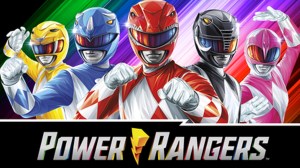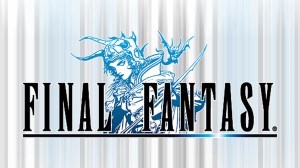Longtime Spider-Man writer Dan Slott urges Marvel creators to “err on the side of kindness” when handling the all-ages superhero, arguing against the quippy character hurling insults and jokes that might make readers “feel bad about themselves.” The writer of a decade-long run on The Amazing Spider-Man, and the brain behind The Superior Spider-Man, the former Spidey scribe says future issues should consider avoiding specific types of jokes about innate traits young readers might share. Doing away with jokes about body image or sexual identity, Slott says, would prevent audiences from feeling like Spider-Man is “mocking them for who they are.”
Videos by ComicBook.com
In a series of tweets published over the past week, Slott disapproves of “fat-shaming” comments typically used against heavily-built bad guys Doctor Octopus and the Kingpin, as well as a crack made by Tobey Maguire’s wrestling wall-crawler in 2002’s Spider-Man. There Spider-Man taunts the burly Bonesaw McGraw (Randy Savage) over his “cute outfit,” asking him, “Did your husband give it to you?”
“This was never about the fictional people that Spider-Man was insulting,” Slott writes in response to his initial tweet. “It was about the audience, especially the younger audience, who might share innate traits with the characters that their hero, Spider-Man, was mocking.”
In another tweet, Slott says Spider-Man is “basically a bully.” Jokes about Kingpin’s weight aren’t about eliciting sympathy for the villain but “about feeling bad for the overweight kid who’s a Spider-Man fan and reading the book,” Slott explains. “Same way the Bonesaw gag in the first Spider-Man movie might have made kids in the audience feel bad about themselves.”
“If these very specific kinds of jokes (ones about innate traits that young readers might share: body image, sexual identity, for example) were no longer made by Spidey … you wouldn’t miss them,” Slott writes, adding Spider-Man most often ridicules his enemies over their costumes and super-villain names.
“A hero like Spider-Man is expected to err on the side of kindness,” Slott says. “Especially towards his young readers who look up to him.”
In response to a tweet accusing the Iron Man 2020 writer of calling for “censorship,” Slott asks, “Would it be ‘censorship’ if it were a character mocking someone for their race, sex, or sexual identity? Or would it be tolerance and understanding to realize that that’s something Spidey shouldn’t be doing in a Spider-Man comic?”
Responding to the subject a final time on August 16, Slott says, “I don’t think we should change old comics, just be thoughtful in how we make new ones.” Slott’s full Twitter thread continues below:
Slide 1
Spider-Rant:
— Dan Slott (@DanSlott) August 8, 2020
It bugs me when Spider-Fans say that Spidey ONLY uses his jokes/quips to “disorient his foes”.
That is 1 way Spidey uses his sense of humor.
Spider-Man’s sense of humor is one of his most versatile tools in his arsenal. It’s practically one of his super powers.
1/
…and, of course, to goof around and bond w/ his fellow super heroes. (Even though most of them don’t really find him all that funny.) 🙂
— Dan Slott (@DanSlott) August 8, 2020
Trust me. There are a zillion ways that Spidey uses his sense of humor in every story. It’s not *just* for getting on bad guys’ nerves.
3/3
Slide 2
One problem with Spidey’s jokes over the years…
— Dan Slott (@DanSlott) August 8, 2020
A lot of them do NOT age well.
Like all the fat-shaming jokes he’s made to Kingpin and Doc Ock.
Or the joke he makes to Bonesaw in the first SPIDER-MAN movie.
That was not good. Almost feel like it should come with a disclaimer.
Slide 3
Yup. I had Doc Ock comment on that MANY times. He’s basically a bully.
— Dan Slott (@DanSlott) August 8, 2020
Slide 4
It’s not about feeling bad for Kingpin, it’s about feeling bad for the overweight kid who’s a Spider-Man fan and reading the book.
— Dan Slott (@DanSlott) August 9, 2020
Same way the Bonesaw gag in the first Spider-Man movie might have made kids in the audience feel bad about themselves. https://t.co/TZouD8ZkHW
Let’s be clear, if these very specific kinds of jokes (ones about innate traits that young readers might share: body image, sexual identity, for example) were no longer made by Spidey (not Deadpool, Hellblazer, or whoever, just Spidey), you wouldn’t miss them. Why? See next post.
— Dan Slott (@DanSlott) August 16, 2020
Slide 5
99.99% of Spidey’s mocking quips to villains are:
— Dan Slott (@DanSlott) August 10, 2020
Making fun of their costume
Making fun of their name
Making fun of what they just said
Making fun of how loopy their master plan is
Making fun of the fact they’re a Lizard
A lot of you are out here dying on a very small hill. pic.twitter.com/9KzPZjwsfP
A hero like Spider-Man is expected to err on the side of kindness. Especially towards his young readers who look up to him.https://t.co/7HaNNA1Cm5
— Dan Slott (@DanSlott) August 9, 2020
Slide 6
I don’t think we’re on different pages here on the main point you’re making. I did a whole thread about it yesterday.
— Dan Slott (@DanSlott) August 9, 2020
I’m just saying why not avoid putting things in books that make young readers feel bad about who they are– when you don’t have to.https://t.co/b2pzatOYSI
Slide 7
Would it be “censorship” if it were a character mocking someone for their race, sex, or sexual identity?
— Dan Slott (@DanSlott) August 9, 2020
Or would it be tolerance and understanding to realize that that’s something Spidey shouldn’t be doing in a Spider-Man comic?
Slide 8
I don’t think we should change old comics, just be thoughtful in how we make new ones. That’s fair, right?
— Dan Slott (@DanSlott) August 16, 2020
As for people being called things, my ancestors were called things ages ago, and society learned and (mostly) moved on. Hopefully we can keep moving forward on all fronts.
Slide 9
I’m pretty sure Spider-Man fans, out of all the fans out there, would be cool with this. Because, as a wise man once wrote:
— Dan Slott (@DanSlott) August 16, 2020
“With great power there must also come great responsibility.” pic.twitter.com/sv58dfvMu9








